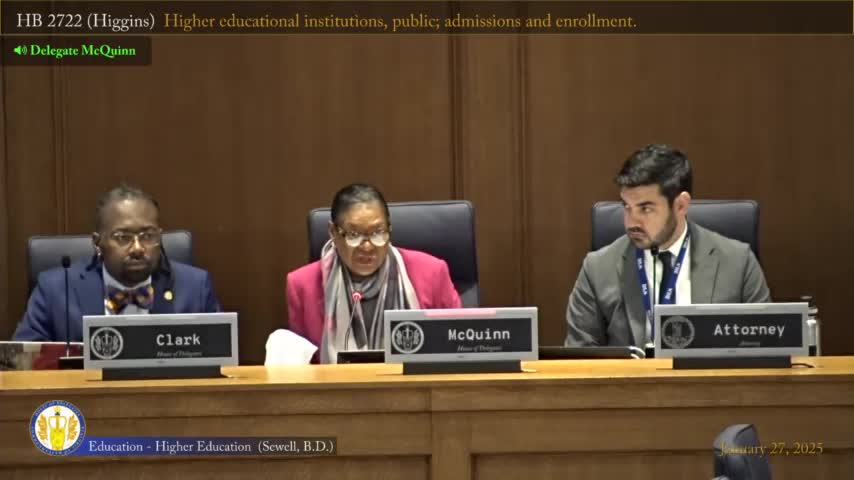Subcommittee advances proposal to use Commonwealth Savers surplus for rebates and college access fund, 6–4
Get AI-powered insights, summaries, and transcripts
Subscribe
Summary
A substitute to House Bill 2593 would use surplus assets from the legacy Commonwealth Savers 529 plan to provide one‑time rebates and create a College Access and Affordability Scholarship Fund; the subcommittee voted 6–4 to report the substitute to appropriations after debate over fiduciary authority and implementation.
A substitute to House Bill 2593 that would direct surplus assets from the legacy Commonwealth Savers defined‑benefit 529 plan into a new college access fund and a $2,500 per‑contract rebate was reported out of the Higher Education Subcommittee on a 6–4 vote.
Delegate Tran, the bill’s patron, described the substitute as aligning the measure with prior JLARC recommendations and with requests from the Commonwealth Savers Plan. Tran said the substitute preserves Freedom of Information Act protections for the new investment board, creates an actuarial surplus sub‑fund, allows account holders to roll rebates into federally approved accounts such as Roth IRAs, and lets the Commonwealth Savers Plan continue administering certain programs.
The substitute would set aside $500 million as an initial deposit to a Virginia 529 access and affordability sub‑fund and authorize additional transfers from the defined‑benefit 529 actuarial surplus in annual increments so long as the defined‑benefit fund remains at or above a 125 percent funded ratio. The remaining surplus — after the initial deposit and the rebates — would be invested by the Commonwealth Savers Plan; interest on that sub‑fund would be used for scholarships and college access programming administered by CHEV. Scholarships in the draft can be awarded for tuition, fees, room and board, books, equipment and childcare, up to $10,000 per student over up to 12 terms.
The Joint Legislative Audit and Review Commission (JLARC) staff testified that the substitute closely mirrors the options in JLARC’s 2022 report and supported the concept of a dedicated sub‑fund and an independent investment board to make annual recommendations to the General Assembly. A JLARC representative said a sub‑fund “would provide flexibility and a long term source of funds, for access and affordability.”
Commonwealth Savers Plan CEO Mary Morris testified in opposition, voicing fiduciary concerns about the proposed investment board and its relationship to the Commonwealth Savers trustees. Morris said the proposal raised “very serious concerns when you're dealing with the trust fund and the fiduciary judgment.”
After extended questioning about governance, fiduciary duty and the mechanics of annual recommendations to the General Assembly, the subcommittee voted 6–4 to report the substitute bill to the Appropriations Committee.
